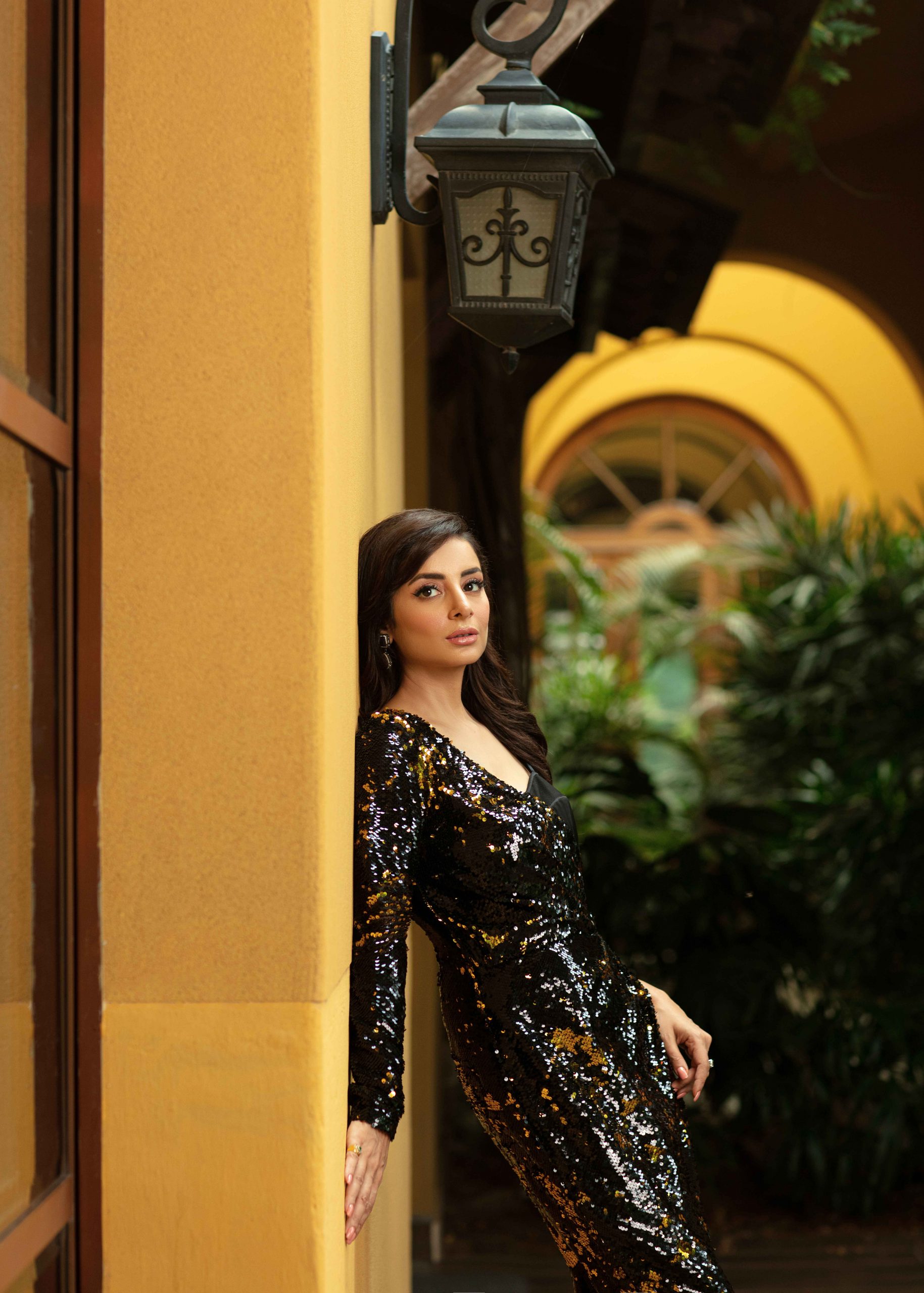 Sarwat Gilani has been busy lately. On top of juggling motherhood, she has been exploring her creative side with acting projects that speak to her. We saw Sarwat undertake a sassy role in the acclaimed web series Churails. She later starred in a crime project titled Qatil Haseenaon Ke Naam. This year, things changed for the better. Sarwat landed the prominent role of Nucchi in Joyland, a film that details the journey of Haider, one of the protagonists, who falls in love with a trans dancer. The project, helmed by Saim Sadiq, may emerge as the official Oscar nomination for Best International Feature Film at the 95th Annual Academy Awards to be held in 2023. Joyland has already won a Jury Prize at the 75th Cannes Film Festival, and is the first Pakistani film to be selected for the festival.
Sarwat Gilani has been busy lately. On top of juggling motherhood, she has been exploring her creative side with acting projects that speak to her. We saw Sarwat undertake a sassy role in the acclaimed web series Churails. She later starred in a crime project titled Qatil Haseenaon Ke Naam. This year, things changed for the better. Sarwat landed the prominent role of Nucchi in Joyland, a film that details the journey of Haider, one of the protagonists, who falls in love with a trans dancer. The project, helmed by Saim Sadiq, may emerge as the official Oscar nomination for Best International Feature Film at the 95th Annual Academy Awards to be held in 2023. Joyland has already won a Jury Prize at the 75th Cannes Film Festival, and is the first Pakistani film to be selected for the festival.
Aside from acting projects, Sarwat is also managing Art House, an educational project for children.
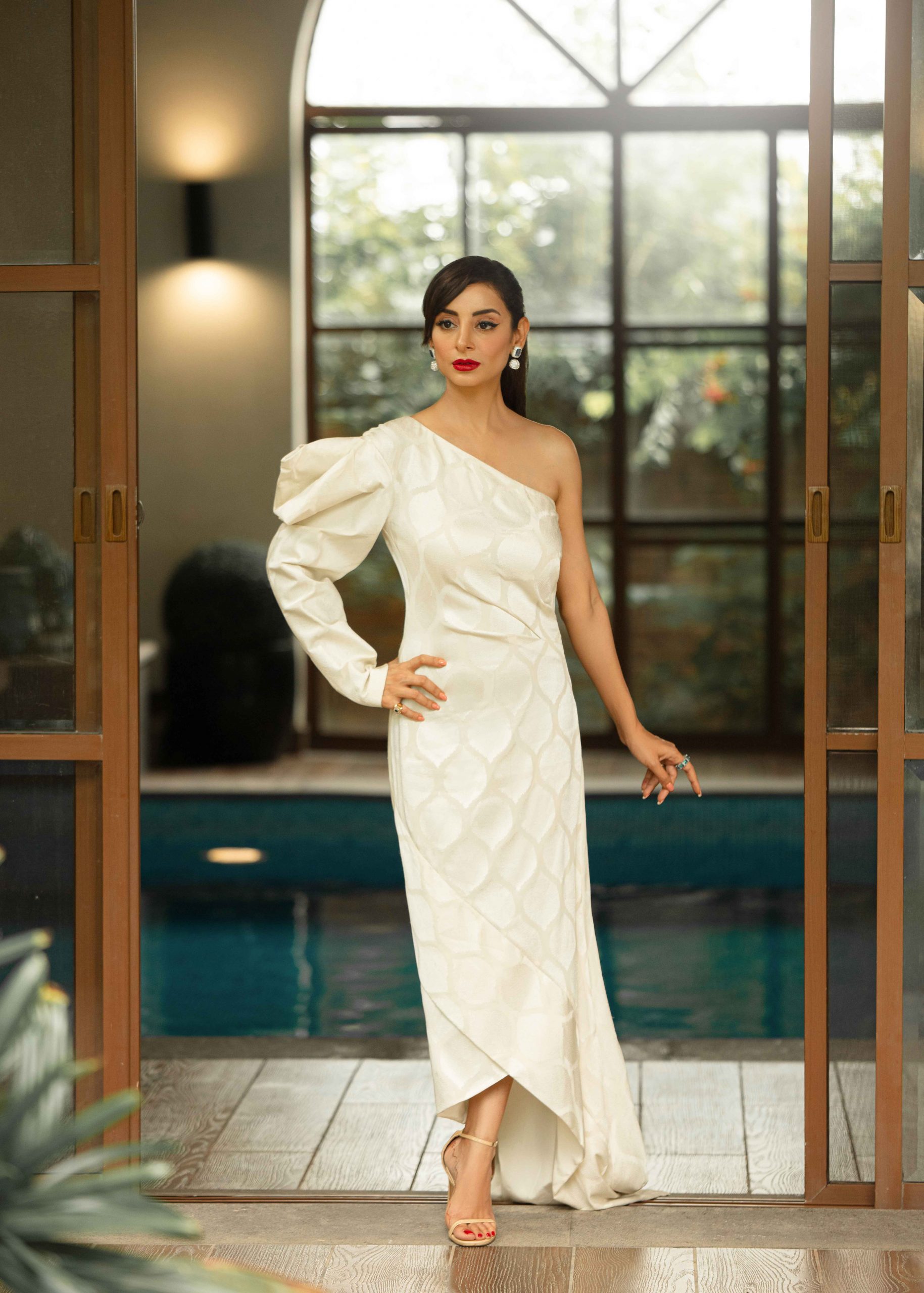 Sarwat, what made you distance yourself from mainstream Pakistani dramas?
Sarwat, what made you distance yourself from mainstream Pakistani dramas?
SARWAT GILANI: I’ve spent 18 years in the drama industry and haven’t seen the narrative change. They are the same stories with different faces. Rarely, one would see a progressive woman-centred narrative. Being a speaker for women’s rights, I couldn’t go back and be part of stories that made them look weak and meek. I feel there are plenty of amazing women out there whose stories are untold, so when those stories are being told, you will see me back on the small screen.
Do you see our television landscape changing for the better though?
SG: I don’t see it progressing; I see a stagnant landscape with the same reparative content. It would be wonderful to see women who are past the age of 30 be the protagonist. It would be wonderful to see real struggles of a single parent or a story around a differently abled child who has achieved something unimaginable. Entertainment is not confined to mother-daughter-in-law tussles. Some people in Pakistan are making a global impact through their narratives and that is changing how people perceive Pakistani content globally.
You starred in Joyland, an award-winning film that bagged accolades at the Cannes Film Festival as well. What made you want to be part of this storyline?
SG: The team, the story, and the honesty with which human emotions were narrated. I’ve always been a sucker for independent cinema and never got a chance to prove myself worthy of it because I worked mostly on the commercial side of the entertainment industry. So, when Sana Jafri—producer and casting director—approached me, I jumped at the opportunity and screamed a big YES!
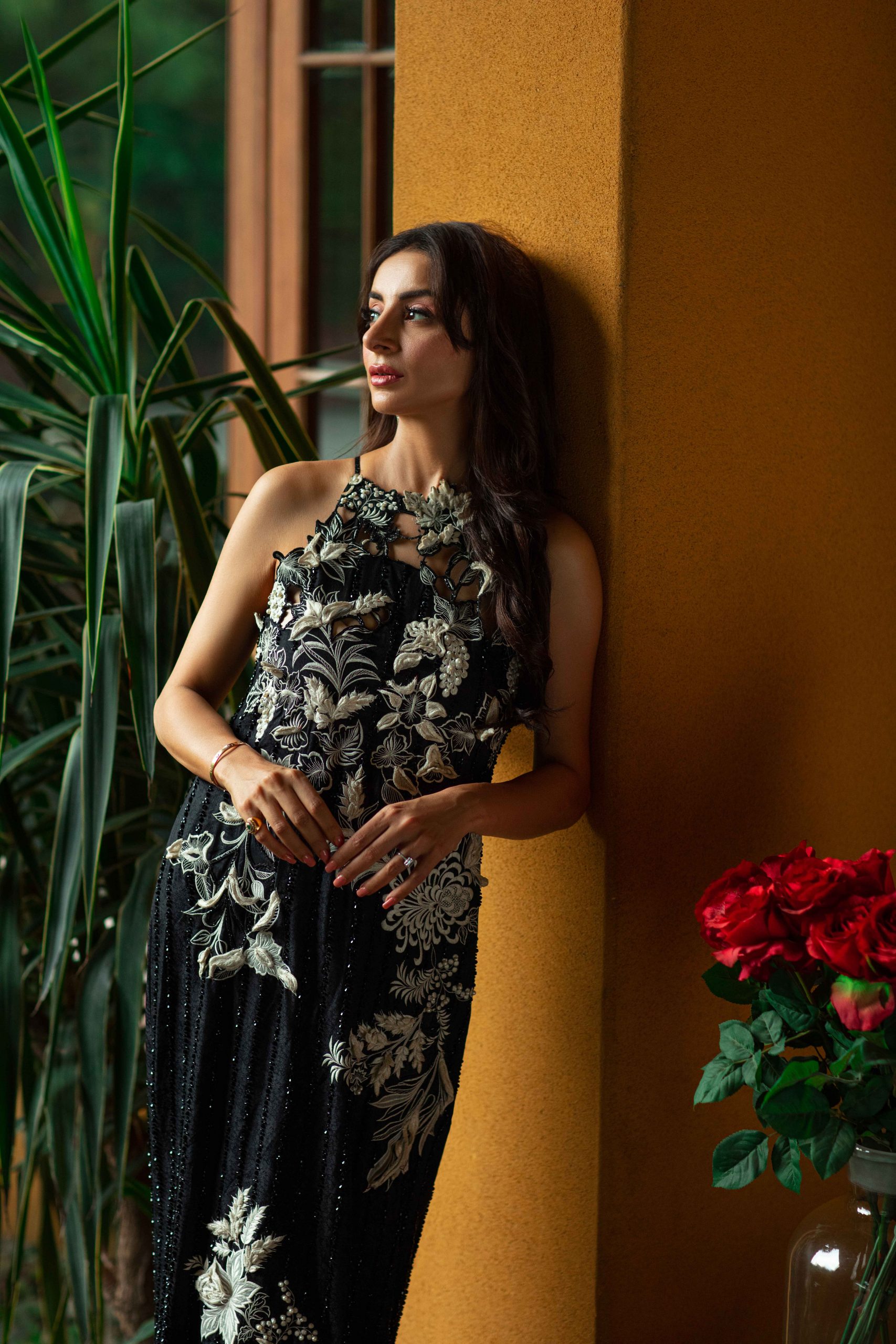 Joyland has also been selected as the Oscar nominee from Pakistan under Best International Feature Film. Can you please comment on what this means for Pakistani cinema? How excited are you?
Joyland has also been selected as the Oscar nominee from Pakistan under Best International Feature Film. Can you please comment on what this means for Pakistani cinema? How excited are you?
SG: This has been a very exciting year for Pakistani cinema and the music industry overall. Our talented artists have won awards globally through numerous platforms. This goes to show that Pakistan is full of amazing talent when it comes to the entertainment industry. Winning awards at the Cannes Film Festival and being a submission for Oscars are promising steps in the right direction. It is very rewarding to have the world acknowledge and appreciate Pakistani talent and have our skills represented in international projects.
Usually, actors yearn to work with ace film directors. Why did you decide to undertake a project like Joyland directed by a novice like Saim Sadiq?
SG: I saw Darling, Saim Sadiq’s debut short film that won many accolades at the Venice Film Festival. I fell in love with the simplicity of the story! It reminded me of Iranian Cinema, which also narrates stories on very simple subjects. One should never underestimate the power of new blood; I am glad I didn’t.
How can compelling stories like Joyland make their mark in a country like Pakistan, particularly when there is so much public and institutional backlash?
SG: If a story touches the hearts of millions globally who don’t even come from our country or culture, then imagine what the film has in store for Pakistanis. Great things don’t come so easily. One has to be patient and wait for the film to premiere and then see the impact it will leave on the viewers. Everything good or bad that comes with Joyland is only worth it then.
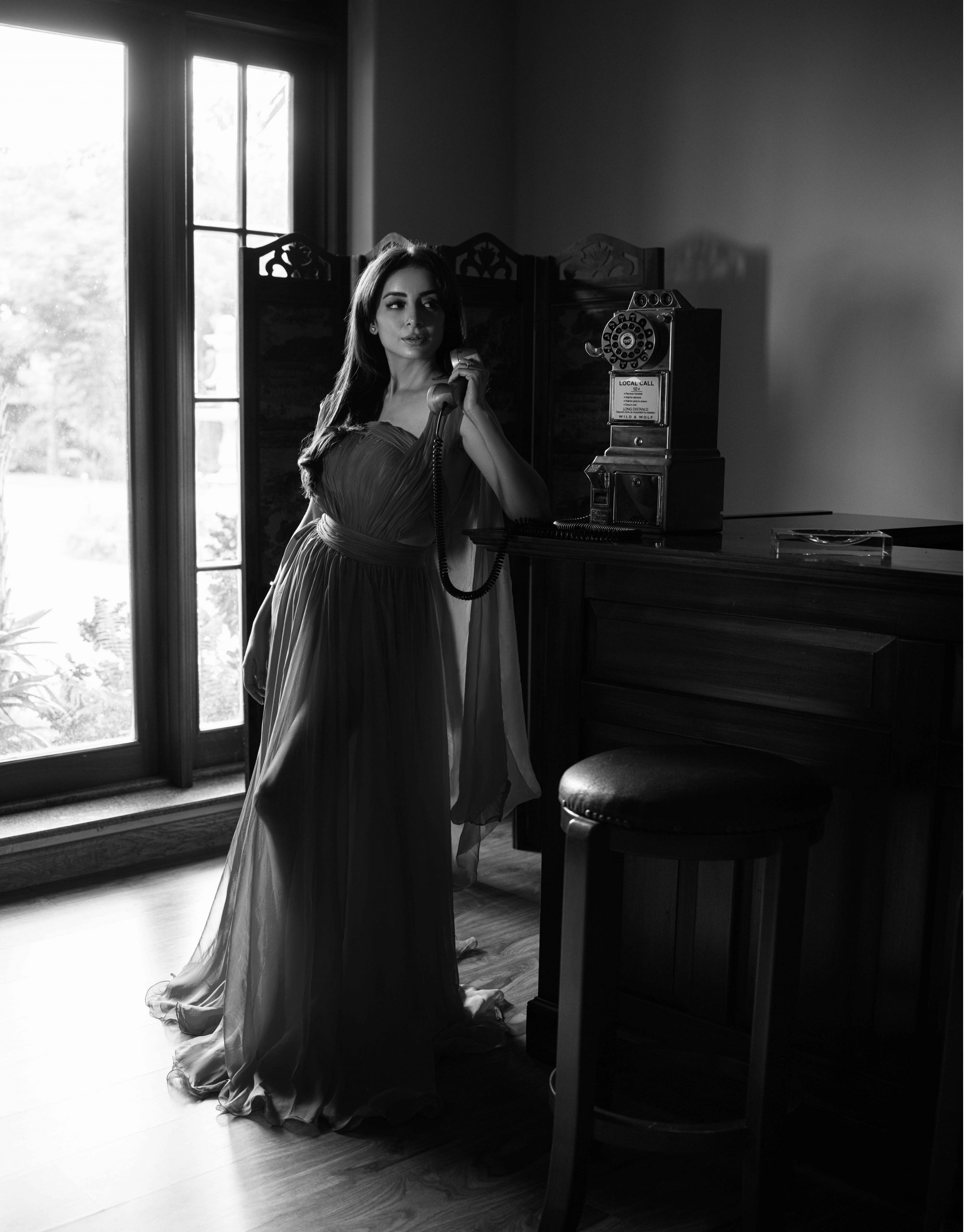 Talk to us about your character in the film.
Talk to us about your character in the film.
SG: The story is about a family—a father and his two sons—living in the city of Lahore. I play Nuchhi, the wife of the older son played by Sohail Sameer. For now, that is all that I can reveal. It’s an ordinary story told beautifully.
How will Joyland change the landscape of our society?
SG: I hope Joyland makes everyone realise that people are people wherever they are from. Everyone has goals and aspirations. Some may have it easy but some have to fight to get what they deserve. This film is a reminder to all those who experience varying levels of emotion in their everyday life; that is the beauty of Joyland. It is an honest, simple and relatable narrative.
How did you handle criticism aimed at your wardrobe at the Cannes Film Festival, particularly with the black dress?
SG: People loved my representation of the Pakistani flag on the red carpet where it was most needed. It was very well planned. I just didn’t want to wear a western dress. Instead, I chose to stand out and stand grounded by wearing a Pakistani designer and attire. The black dress you are referring to was for an interview shoot that was done at Cannes by a superb photographer, Stephanie and it received a lot of attention. Good or bad is all part of the game, so no hard feelings there.
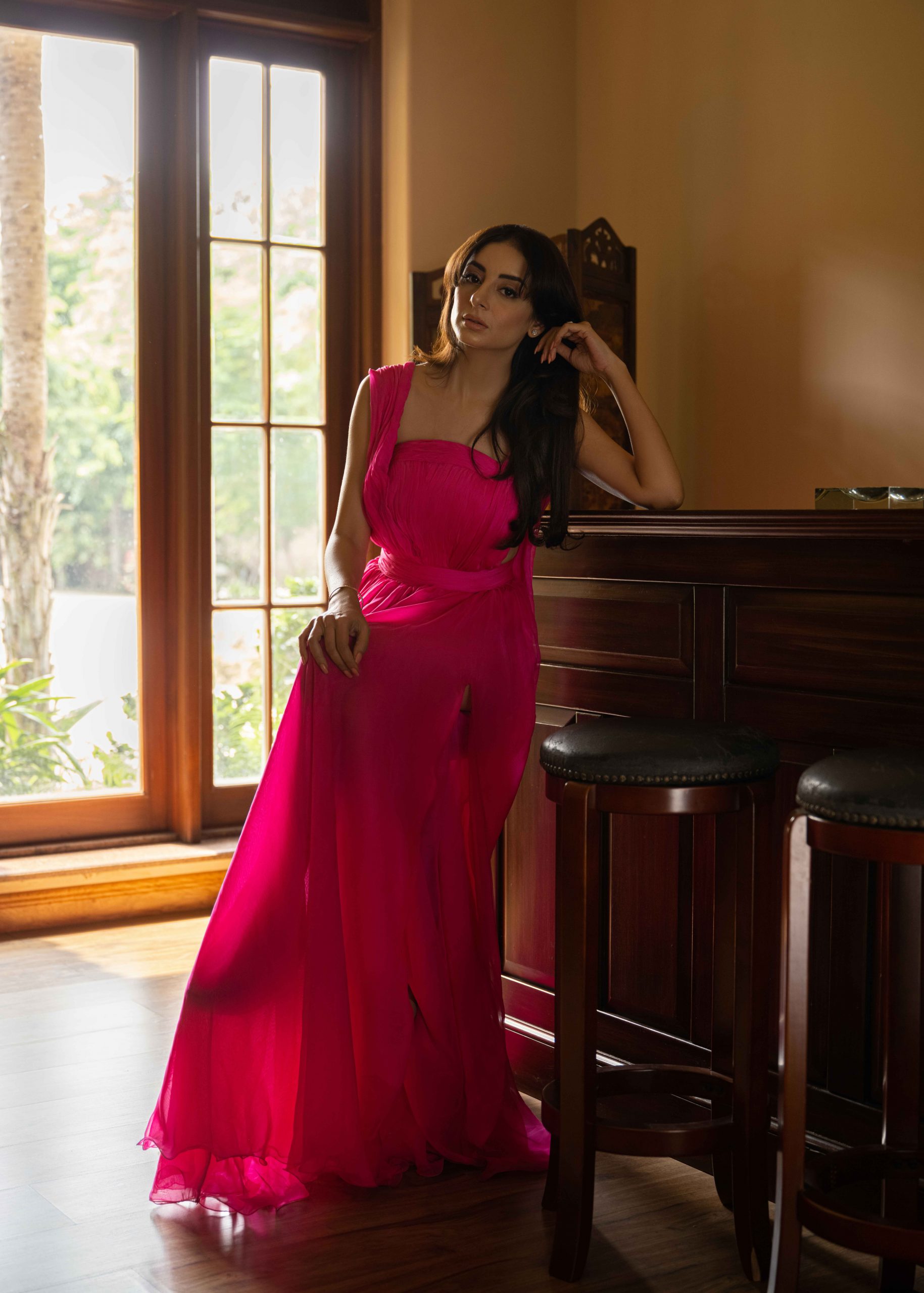 Talk to us about Art House. What is your vision for this project and how will it benefit Pakistan?
Talk to us about Art House. What is your vision for this project and how will it benefit Pakistan?
SG: We, at Art House, encourage children to choose study programs for themselves, recognize things that interest them and help them explore their strengths. We offer free demo classes to children who are unsure of what they want to do. There are days when children feel uninterested in a class even though it is their choice of program. We welcome them to explore another activity or a class that takes place at the same time. In most cases, they return to their first class or change their program. We have seen that children are much happier in the new program.
What is next for Sarwat Gilani?
SG: The world is my oyster. Anything is possible. I don’t like to limit myself with my imagination. I leave it to the universe to surprise me with its best.
How do you wish people to remember you?
SG: I want people to remember me as an ordinary girl with an extraordinary vision for the children of Pakistan.
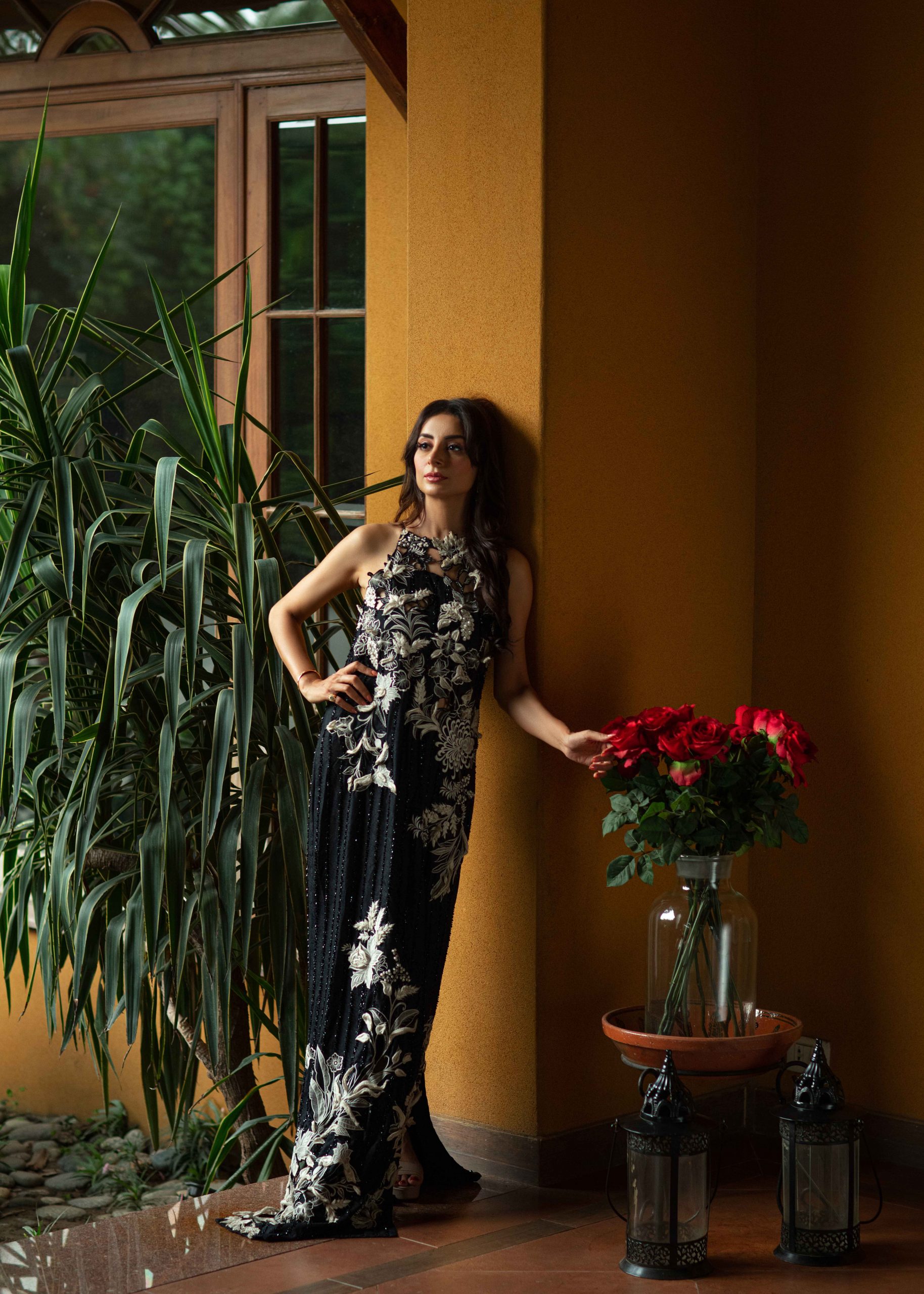 What important lessons have your past mistakes taught you?
What important lessons have your past mistakes taught you?
SG: That one’s happiness does not depend on anyone else but themselves.
How has motherhood changed your perspective on life?
SG: It made me realise that we come into this world to make it a better place. Choosing to have children is not enough, but raising them as responsible individuals should be our top priority.
INTERVIEW: HAIDER RIFAAT
STYLING & DIRECTION: RAO ALI KAN
HAIR & MAKE-UP: FATIMA NASIR
PHOTOGRAPHS: ASAD BIN JAVED
![]()










































